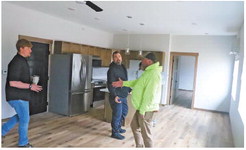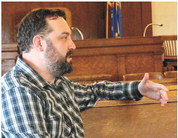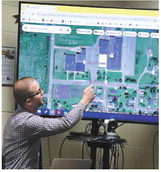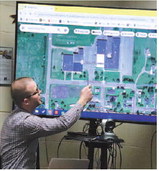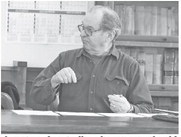Reshaping the rubric
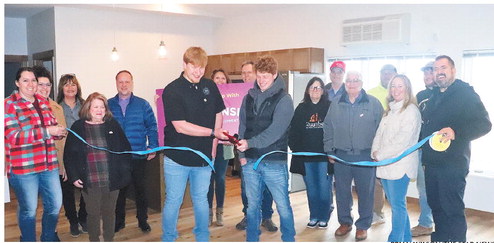

With more requests than money available, members of the city of Medford Hotel/Motel Room Tax committee are working to tighten the application guidelines to ensure funds are used effectively to encourage tourism in the community.
The city of Medford charges a special 4% sales tax on motel and AirBNB rooms rented out in the city. A portion of these funds are kept by the city for general purposes with the bulk of money collected going to help fund community events which ideally would bring in more tourists to stay in motel rooms and spend money at area businesses.
The challenge facing the committee, is that there is a growing number of groups and events seeking funding while the amount of available funds is remaining level. This has resulted in the committee routinely having to make tough choices of picking which groups get funding and how much funding they should receive.
At a special meeting held Tuesday afternoon, committee members reviewed a draft rubric to determine eligibility for requesting groups and to discuss guidelines for the committee to use in determining grant awards.
“They are all good events,” said committee member Adam Rodman, noting the difficulty in drawing a line between which groups should get money over other groups.
He called on the committee to follow the statutory language authorizing room taxes and look at events that will help support local motels and other establishments.
Committee member Mike Bub said a challenge is that the law is vague about defining transient tourism. “Is someone from Rib Lake transient? Is someone from Gilman transient?” Bub asked noting people from those communities often come to events in Medford.
He gave the example of the fireworks held during the Old Fashioned Christmas celebration. He said they aren’t necessarily going to fill hotel rooms. “Are they good for our community? Absolutely yes,” Bub said.
Bub, who also serves on the county board, noted there is a similar type of discussion going on with the county’s Powerline Impact Fee grants which are being heavily utilized. He said there is a resolution that will be brought forward at next week’s county board session to freeze the Powerline funds for 12 months to allow it to replenish. While not supporting a freeze on spending room tax funds, Bub said the committee needed strong guidelines.
See ROOM TAX on page 10 “I think we need some guardrails,” Bub said.
One such guardrail is a cap on the amount any one group can be awarded. The group was receptive to this idea and tentatively set a cap of $3,500 for a first time request and $2,500 for a repeat request.
This raised concerns over annual events such as the Chamber’s request for Parkfest to help pay for the band and for the Old Fashioned Christmas activities. Committee members will include those annual events as budget line items with the funding allocations to be spread out throughout each quarter to help balance expenses through the year. Based on keeping funding the same as the past, this would amount to about $3,250 being budgeted each quarter to cover those designated projects.
In addition to looking at a dollar cap on requests, there was also discussion on how far outside the city of Medford they should be willing to fund events or if the group should even fund events outside the city limits.
A suggestion was made to allow funding for events that are within Taylor County and 15 miles of the city of Medford. This is largely in recognition that there are few motel options outside the city and events in those areas would benefit motels in Medford.
In the end, rather than establishing a set distance, committee members will ask groups to show how money being spent will bring people to the community, for example an annual cribbage tournament brings people from multiple states and the organizer provides information each year on how many motel rooms were filled from the event.
Other areas committee members looked at included tightening the reporting rules. Under the existing rules, groups have 60 days following the event to provide a financial report for their event and how the money was spent.
Bille Hartwig of the Medford Area Chamber of Commerce, which assists the city with the room tax grant program, noted that she has to routinely hunt down organizations months after the donations in order to prepare the annual report for the city council.
Committee members reached a consensus that groups not turning in their required reports within the timeframe could face being disqualified from getting funding for a calendar year. Sue Emmerich suggested keeping it to just a year because the people involved in running events are mostly volunteers.
“We have to have the courage to say no,” Bub said, noting it is a challenge when the group representatives are all there and committee members know them all.
